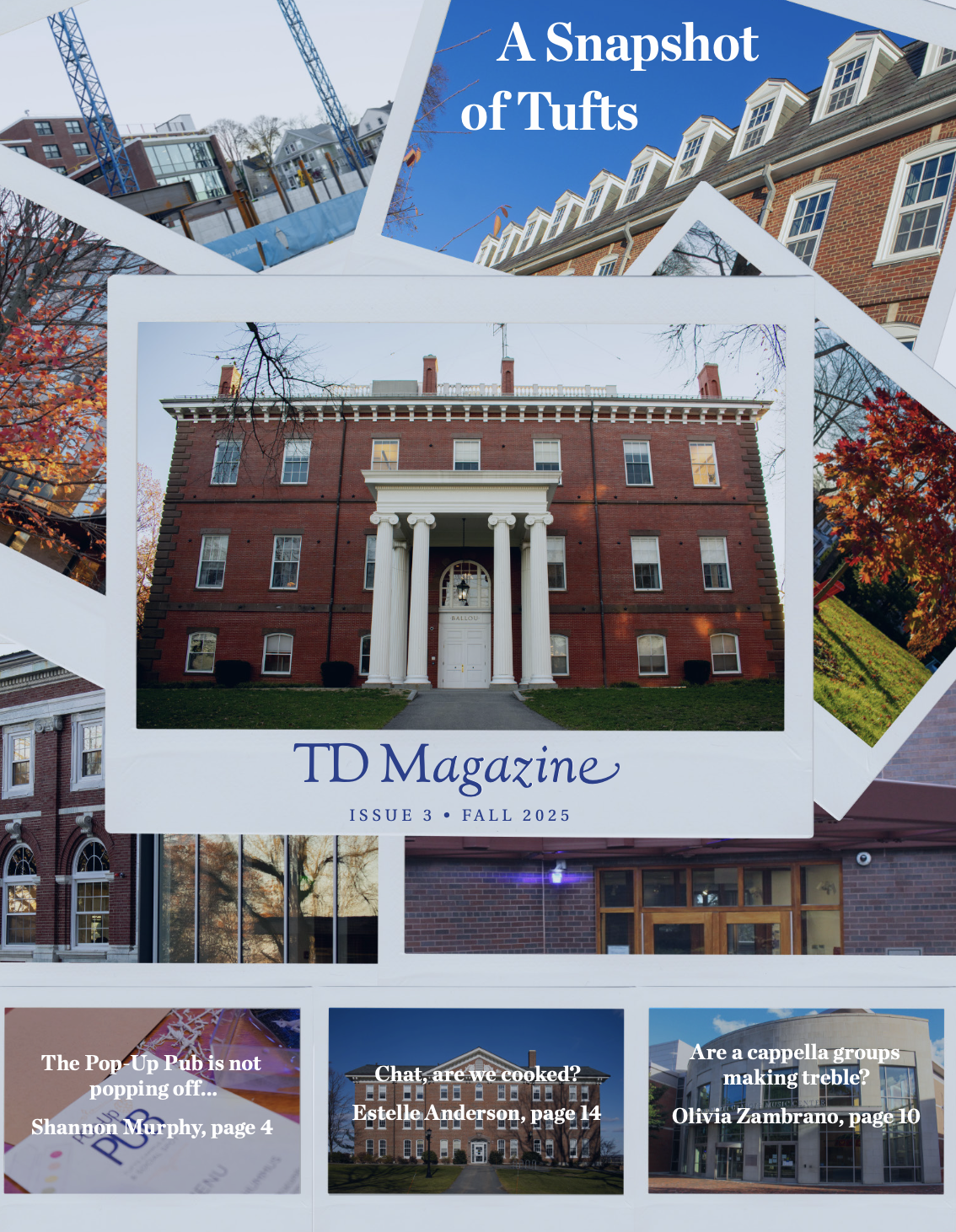The City of Medford announced on Sept. 30 its commitment to the international Race to Zero campaign and pledged to cut its greenhouse gas emissions in half by 2030.
The city also released an executive summary of its Climate Action and Adaptation Plan draft, outlining the city’s objectives and plans to address climate change in the upcoming years.
The Race to Zero campaign is a global initiative backed by the United Nations Framework Convention on Climate Change that seeks to mobilize a coalition of countries, cities, businesses and individuals toward urgent climate change action.
The campaign’s primary objective is for its participants to commit to zero net emissions by 2050. Medford joins other neighboring Massachusetts communities in this pledge, including Somerville, Cambridge and Boston.
Rocco DiRico, executive director of government and community relations at Tufts, works closely with Tufts' host communities and is hopeful about Medford's commitment.
“Medford [has] been a local leader in clean energy, climate resiliency, and sustainability,” DiRico wrote in an email to the Daily. “Medford is already working on some of these goals, so I think that these efforts are obtainable by 2030.”
According to Alicia Hunt, Medford’s director of planning, development and sustainability, the city has already been working toward reducing greenhouse gas emissions for the past 20 years. Hunt explained that joining the Race to Zero campaign was a natural extension of Medford's past work.
“Medford has always been a city that signs onto these and says we understand that climate is an urgent problem, that it needs to be dealt with immediately and that we can’t wait,” Hunt told the Daily. “A lot of the work that needs to be done needs to be done locally. So this one just made natural sense.”
Sophie Impellitteri, a senior and one of the EcoRep coordinators for the 2021–22 academic school year, believes Medford’s commitment to cutting greenhouse gas emissions in half by 2030 is an attainable goal if the city is willing to make the necessary policy changes. She views the scope of Medford's undertaking as matching the urgency of climate change reform.
“We need to be setting ambitious goals on the scale of the problems,” Impellitteri said.
Once they have joined the Race to Zero campaign and pledged to reach net-zero emissions by 2050, cities are required by the United Nations Framework Convention on Climate Change to fulfill several requirements. They must provide an explicit short- and medium-term plan to achieve net-zero emissions, take immediate action to reach this target and publish their progress annually on global platforms.
According to apress release from the city, Medford will commit to four immediate "action steps," including creating a more inclusive society, moving toward resilient and sustainable energy systems, advancing toward zero waste and creating sustainable food systems.
Medford’s Climate Action and Adaptation Plan draft outlines the exact steps and actions the city plans to take to address climate change. According to Hunt, the draft lays out a plan to address climate change while prioritizing equity and for Medford citizens.
“The vision of our plan is for Medford [to be] a place where everybody can thrive both now and for generations to come, and to ensure that our future for everybody is just and equitable, but also resilient,” Hunt said. “It’s not just about reducing our greenhouse gases and it’s not just about being able to respond to climate change but that it’s [a place] for everybody.”
TheClimate Action and Adaptation Plan draft includes 32 different strategies that focus on four different areas of interest within the city: building and energy, ecosystems and natural environment, public health and transportation.Each strategy features three to 10 action steps that Medford will implement within the next 10 years.
Impellitteri hopes Medford will undertake clean energy initiatives as part of its net-zero emissions plan as a way of promoting justice and equity in the Medford area. She also wants to see Tufts and Medford work together to make lasting change.
"[Tufts is] a part of Medford, so we should be working with them [and] sharing our academic research [and] resources," Impellitteri said.
Tufts shares many of Medford's climate goals. According to the2019–20 Tufts Campus Sustainability Progress Report, Tufts committed to reaching carbon neutrality by 2050 after University President Anthony Monaco signed the Second Nature Climate Leadership Commitment in April 2016.
DiRico stated in an email to the Daily that Tufts frequently collaborates with Medford on climate change initiatives. Faculty and staff share their climate-related knowledge and expertise with Tufts' host communities, and several Tufts buildings are LEED certified or have solar panels installed.
In order to learn more about what the city is doing to promote climate change action, Hunt encouraged Tufts students to attend Medford’s Harvest Your Energy Festival on Oct. 16, which will feature many different consultants and organizations involved in contributing to Medford’s climate change plan.
Hunt discussed how Medford’s climate work represents a collaboration between many different departments.
“What I'm most excited about is the fact that this isn't being done by one person in one office, but it's actually people all over the city,” Hunt said. "Some of the actions are going to be led by our board of health, and some by engineering, and some … by the diversity office, and some by our traffic and transportation office, and some are going to be led by the planning office … also the bike commission will be involved."
DiRico reflected on the potential Medford’s climate action plan has to spark change throughout the entire Medford community.
“It’s my hope that Medford’s commitment to the ‘Race to Zero’ campaign will inspire businesses, nonprofit organizations, and everyday citizens to take actions to reduce greenhouse gas emissions,” DiRico said.






